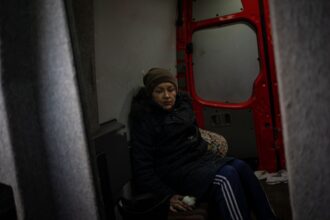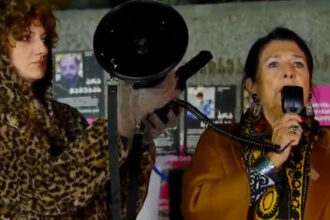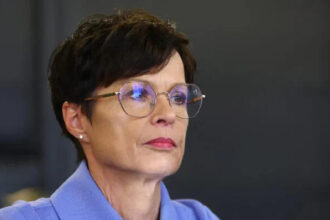On October 11, the U.N. Human Rights Council passed a resolution entitled “Cooperation with Georgia” calling for immediate and unrestricted entry for international human rights monitors to the occupied Abkhazia region and Tskhinvali region. The resolution also asked the U.N. Human Rights High Commissioner to provide updates on the progress of the resolution at future sessions, and to continue to provide technical assistance through the Office for the High Commissioner in Tbilisi. The resolution was passed with 24 votes for, three against and 20 abstentions.
The Human Rights Council reaffirmed “its commitment to the sovereignty, independent, and territorial integrity” of Georgia within its internationally recognised borders and welcomed the Georgian government‘s cooperation with the UN High Commission’s office.
The resolution condemned “the ongoing illegal military presence of Russia” in Georgia’s occupied territory, as well as the attempts to “legitimize their military presence, including by organizing illegal so-called election by the authorities exercising effective controls therein, signing of so called treaties, and creating so-called joint social-economic spaces between the Russian Federation, and [occupied] Abkhazia.”
The resolution also condemned the seizure of land, including in Gagra district, Abkhazia; the transfer to Russia the Sokhumi Airport and the Bichvinta Resort; as well as statements regarding the intention to hold an so-called referendum on the joining of the Russian Federation in the Tskhinvali Region.
The U.N. Human Rights Council expressed “serious concerns” over the continued construction of barbed-wire fences and artificial obstacles along the occupation line. This has a “negative effect on the already poor socioeconomic condition of the conflict affected population, their freedom …”. The Council highlighted grave human rights violations including discrimination against ethnic Georgians. It also highlighted torture, kidnappings and illegal detentions as well as restrictions on access to medical evacuations and education. It also condemned demolition of displaced people’s homes and the erasure Georgian cultural heritage.
The resolution also expressed “deep concern”, regarding the killings by Russian forces of Tamaz Ginturi, and Temur Karbaia, as well the impunity for ethnic Georgians killed in the occupied areas. The Council also noted the fact that refugees and internally displaced people are still unable return to their homes safely and with dignity in these regions. It also warned that human right abuses in the region could lead to further displacement.
The U.N. Human Rights Council expressed “serious concerns” about the repeated refusal of access to international and regional observers, including U.N. mechanisms for human rights, in the occupied areas. It also expressed concerns about the restrictions placed on international organisations and the hindering efforts to build confidence in these regions. The Council stressed the importance of periodic U.N. reports for an impartial assessment on the human rights situation both in the United States and the Middle East.
The resolution:
* Demands immediate and unhindered access to the Office of the United Nations Human Rights High Commissioner and other international and Regional human rights mechanisms in Abkhazia and Tskhinvali/South Ossetia;
* Requests that the United Nations High Commission for Human Rights, in accordance to its resolution 5/1 dated 18 June 2007, present to the Human Rights Council an oral update on follow-up of the current resolution at its fivety-eighth sessions and to submit a report to its fifty-ninth sessions on developments relating and the implementation to the present Resolution;
* Requests the High Commission to continue providing technical assistance through the Office of the high commissioner in Tbilisi.
Also Read:
* 05/04/2023: UN Human Rights Council Adopts Resolution Regarding Occupied Regions in Georgia
Shamba says he would welcome Georgia’s apology as a first step towards reconciliation
Tskhinvali De-facto Authorities Restrict Movement across Occupation Line during October 26 Elections
Georgian citizen illegally detained by Russian Occupation Forces released
Two Georgian citizens face up to five years in Tskhinvali Prison if they try to remove an occupation sign
Read More @ civil.ge




